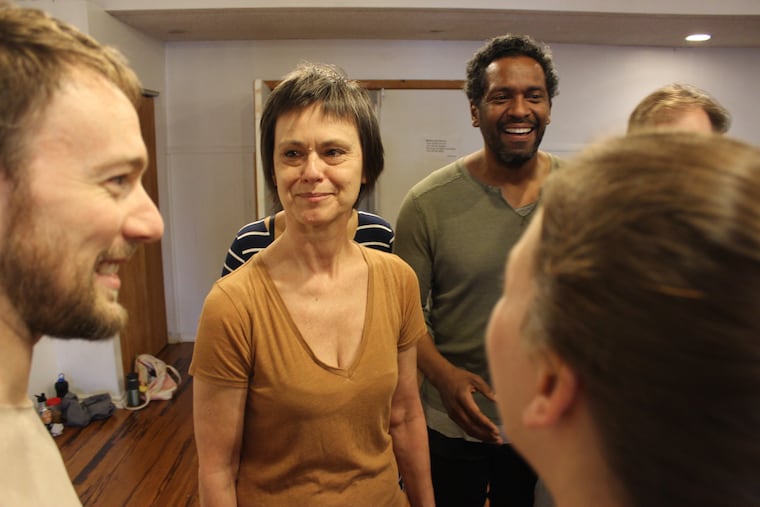Wilma Theater’s Blanka Zizka on living inside history, from the Czech Republic to Philly | My hometown
Living under cultural suppression turned Zizka into a theater artist.

I grew up in Mlada Boleslav, a town of 27,000 people northeast of Prague. The town was named after Count Boleslav II, who in 935 murdered his brother Vaclav in front of a church. Vaclav was later canonized by the church and became St. Vaclav (St. Wenceslas), who is even now considered a spiritual father of the Czechs. Since then, like most European cities, Mlada Boleslav has experienced its ups and downs of history. The city was destroyed many times by various wars and uprisings, but it was always rebuilt.
I was born in Mlada Boleslav nine years after the end of World War II, six years after the Moscow-organized communist coup, two years after horrendous Stalinist show trials in Prague, where 10 members of the Communist Party were sentenced to death, and one year after Stalin's death. I'm mentioning the history because I believe it becomes part of an individual's memory, and the memory becomes part of our identity. Though I wasn't alive when any of these things happened, they are part of the people and place I come from, and have helped to shape who I am.
My family lived in a neglected house that was nationalized by the government and divided into units. In the apartment on the first floor lived my family, my dad's parents, and an old couple, members of the Communist Party. Only later I found out that the couple were living in the same apartment in order to inform on my parents. This was quite common. There were many informants living among the population. People were afraid to voice their opinions. My parents were afraid to say anything in front of the children for fear that we would repeat it in school around teachers or neighbors, and get them into trouble. Children's questions concerning history, politics, or injustice were answered either with a joke or silence.
In many theater pieces I stage, I encounter characters searching for the truth hidden inside these kinds of silences. They are an essential part of great dramas. But how do we find that truth? Theater helps us to reimagine what it would be like if we were living in the moment of history that is not ours. We don't know who we are until we enter a crisis. How would we behave? What kind of steps do we take? Our actions reveal who we are.
In 1968, Czechoslovakia was invaded by Soviet and Warsaw Pact armies. Mlada Boleslav, because of a large military base, was one of the first targets. At the age of 14, I watched Soviet tanks roll into my city. I watched people crying, throwing rocks, and shaking their fists. I threw rocks as well. Two years later, during my literature class, our professor ordered us to tear out pages from our textbooks. These offensive pages contained lessons about writers whose work was publicly denounced as ideologically subversive by the new pro-Soviet government.
I can see it as if it were happening now — all of us, 16 years old, ashamed, our heads bent down, no eye contact, tearing those pages out of our books. What was on our minds? We were never allowed to speak of it. Whom could we talk to? Whom to trust? I was profoundly ashamed of everybody involved in the situation: my teacher, classmates, and myself.
But I can ask another question. Was this experience perhaps the beginning of something new? I believe so. I think it pushed me toward my path of becoming a serious theater artist. My life in Mlada Boleslav at that very specific time taught me that we all live inside of history. We can't pretend we don't. How does it impact us? What do we do with it? What do we do?
Blanka Zizka is the founding artistic director of the Wilma Theater.
What’s your hometown story?
Tell us how your hometown shaped you. Send 150 words about where you grew up and what it means to you now to opinion@philly.com Some answers may be featured on Philly.com and in the Inquirer.